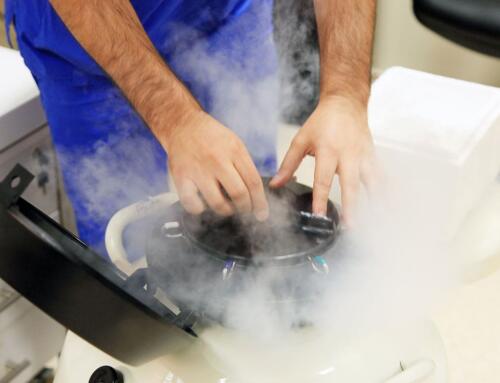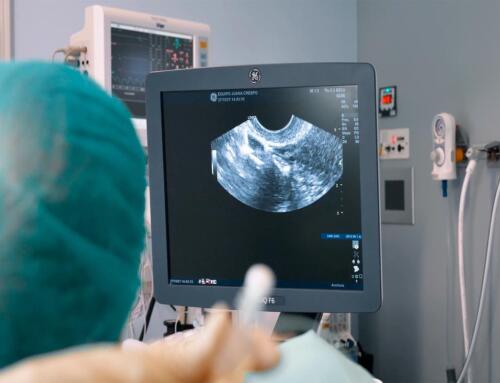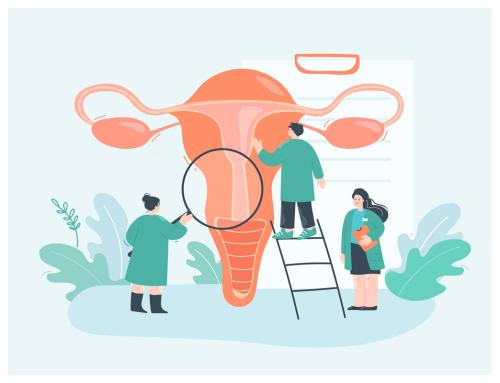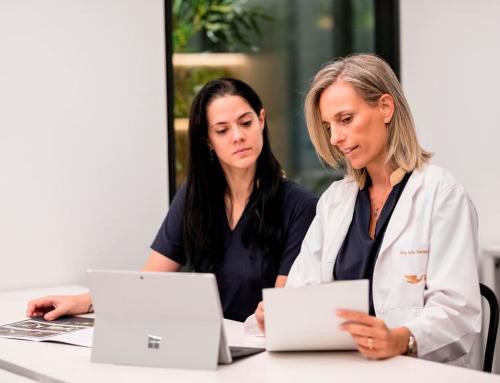In vitro fertilization (IVF) stands out as one of the most prevalent treatments in assisted reproduction clinics like ours.
On our website you will find detailed information explaining what this process entails in each phase: ovarian stimulation, follicular aspiration, fertilization and insemination, embryonic culture, and embryo transfer.
Many of our patients express concerns regarding factors influencing IVF success, posing queries about dietary guidelines during this period, potential limitations on their usual activities, or how to prepare for receiving results. In response to these concerns, we’ve crafted a guide focusing on both the physical and emotional aspects of preparing for IVF.
Should you have further inquiries, don’t hesitate to contact us. We understand that going through this process can be mentally exhausting, and that providing answers to your questions can offer more reassurance and peace of mind.
How to Prepare Physically and Emotionally for IVF: Frequently Asked Questions
Do I need to follow a diet before IVF?
Both excess weight and excessive thinness can affect the menstrual cycle and fertilization, so weight is a factor that can condition assisted reproduction treatments. Physical preparation for IVF may include seeking a more balanced weight (a specific diet may be necessary, following medical criteria). In any case, eating healthy will always promote healthy eggs and a more receptive body. The general recommendation before IVF is to follow a balanced diet to ensure an adequate vitamin intake.
Can I smoke or drink before IVF?
Smoking, drinking coffee, or consuming alcohol can have an impact on both fertility and the effectiveness of IVF. Therefore, it is advisable to minimize or eliminate these habits as much as possible when preparing for IVF.
Why is it important to sleep well throughout the process?
Ensuring quality sleep is a crucial aspect of your overall well-being during the IVF process. Both physical and emotional aspects of IVF preparation benefit significantly from a good night’s sleep.
Prioritizing rest can contribute to a more relaxed state of mind, helping to alleviate stress and manage nervous tension associated with fertility treatment.
Consider establishing a consistent sleep routine by going to bed and waking up at the same time each day. This routine can aid in optimizing your body’s natural circadian rhythm, promoting better sleep quality. Additionally, creating a sleep-conducive environment, such as sleeping in complete darkness, is recommended. This practice not only fosters better sleep but also enhances the production of melatonin, a hormone integral to the development of follicles.
Do I need to take any medication or supplements before starting an IVF cycle?
We understand that each individual case is different At Equipo Juana Crespo. As a result, all of our treatments are fully customized. Generally, it is not necessary to take any medication in preparation for IVF; however, our specialists may recommend increasing the intake of certain vitamins or incorporating supplements like iron or folic acid based on individual needs.
👉 Learn here about the different supplements to facilitate pregnancy
What medical tests will be done before starting the treatment?
Before IVF, several tests will be conducted:
- Ultrasound to confirm that your uterus and ovaries are in good condition to start treatment.
- Hormonal analysis and tests for viral diseases.
- Embryo transfer test: involves the introduction of a thin and flexible catheter through the cervix to determine properties such as its length, consistency, and direction. It is a quick and painless procedure that provides valuable information for the future embryo transfer as part of the treatment.
Do I need any prior knowledge to administer the medication? What are the guidelines to follow?
Almost all medication for IVF ovarian stimulation cycles is administered subcutaneously. You can administer it yourself easily, following the instructions of our team. It is essential to follow the pharmacological guidelines rigorously, as well as to respect the medication schedules and instructions for storing the drugs.
What side effects should I be aware of before starting? Are there any contraindications?
As part of the physical and emotional preparation for IVF, we suggest discussing any uncertainties you may have about ovarian stimulation medication and its potential side effects with our team before initiating treatment. It is also advisable to inform us if you are using any other medications to rule out contraindications that could affect the outcome of IVF.
Can I exercise before and during IVF?
Physical activity is beneficial at any life stage, including before and during IVF, but it is recommended to adjust its intensity. Specifically, during the ovarian stimulation phase, it is advised to reduce the intensity of physical activity as the ovaries enlarge, and vigorous exercise may lead to discomfort. This entails avoiding high-impact and contact sports; however, activities like walking, biking, or Pilates are deemed suitable.
On the day of follicular aspiration, maintaining a calm and relaxed state is crucial, and it is not recommended to engage in exercise to prevent excessive muscle tension in the abdominal and pelvic floor areas, which could impede the procedure or intensify discomfort. Following follicular aspiration, participation in low-impact exercise is permissible. Subsequently, once the embryos are transferred to your uterus, you are free to partake in moderate physical exercise from the first day, always adhering to the guidance provided by the medical professionals.
What will I feel during IVF?
A good physical and emotional preparation for IVF involves knowing what you will feel at each stage of treatment. During stimulation, most women experience discomfort similar to a normal ovulation cycle. Once stimulation is complete and before follicular aspiration, the ovaries increase in size, resulting in a sensation of weight or abdominal swelling that may increase when sitting or changing positions, such as sleeping. Abdominal distension or a feeling of “bloated stomach” is another symptom that appears at the end of stimulation in IVF treatments, along with increased and transparent vaginal discharge.
How can I prepare for follicular aspiration and embryo transfer?
Before follicular aspiration, you should not eat, drink water, chew gum, or eat candies. It is also recommended, both in follicular aspiration and embryo transfer, to avoid perfumes, deodorants, and strong-smelling creams.
Why do I need to have a full bladder during the transfer?
On the day of the embryo transfer, it is recommended to arrive with a comfortably full bladder and a sensation of needing to urinate. This facilitates a clear view of the area, making it easier to select the most appropriate location for depositing the embryo for optimal development. However, there are instances where, conversely, an empty bladder is required due to the uterine position, a factor precisely examined during the embryo transfer test. As a result, at Equipo Juana Crespo, each case undergoes evaluation, and personalized recommendations are provided for the day of the embryo transfer.
Is it advisable to have emotional support before and during the IVF treatment?
Being emotionally ready for the IVF process, including the potential for success or setbacks, is crucial. The mental and emotional well-being of women seeking pregnancy holds the same significance as their physical health. Furthermore, a patient who has faced multiple unsuccessful IVF attempts may not maintain the same level of energy and motivation as at the beginning of the journey, emphasizing the importance of psychoemotional support from family, friends, partners, and professionals.
In our clinic, a specialized fertility psychologist is available to assist you in preparing emotionally, aiding in the identification and processing of emotions throughout the entire process. Rest assured, with the support of Equipo Juana Crespo, you are in capable hands. We boast top success rates in assisted reproduction techniques. Feel free to reach out to us for information on any of our treatments and specialties; we’re here to help.
















